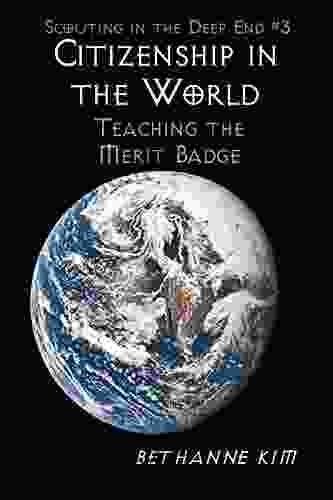Scientific Research in Information Systems: A Comprehensive Guide

Scientific research plays a vital role in the field of information systems (IS). It helps us to understand the fundamental principles that govern the design, development, and use of information systems, and it provides us with the knowledge and tools we need to solve real-world problems.
5 out of 5
| Language | : | English |
| File size | : | 2475 KB |
| Text-to-Speech | : | Enabled |
| Screen Reader | : | Supported |
| Enhanced typesetting | : | Enabled |
| Word Wise | : | Enabled |
| Print length | : | 169 pages |
In this article, we will provide a comprehensive overview of scientific research in IS. We will begin by discussing the key concepts of scientific research, including the scientific method, research design, and research ethics. We will then discuss the various methodologies that are used to conduct research in IS, including qualitative, quantitative, and mixed methods research. Finally, we will discuss the applications of scientific research in IS, including the development of new theories, the evaluation of existing systems, and the design of new systems.
Key Concepts of Scientific Research
The scientific method is a systematic approach to research that involves making observations, forming hypotheses, testing hypotheses, and drawing s. The scientific method is based on the principle of falsifiability, which means that a hypothesis can only be considered to be scientific if it is possible to prove it false.
Research design is the process of planning and conducting a research study. The research design should be tailored to the specific research question that is being investigated. There are a variety of different research designs, including experimental designs, quasi-experimental designs, and non-experimental designs.
Research ethics are the principles that guide the conduct of research. Research ethics ensure that research is conducted in a responsible and ethical manner. The most important research ethics principles include the principle of informed consent, the principle of confidentiality, and the principle of beneficence.
Methodologies for Conducting Research in IS
There are a variety of different methodologies that can be used to conduct research in IS. The most common methodologies include qualitative research, quantitative research, and mixed methods research.
Qualitative research is a research methodology that involves collecting and analyzing non-numerical data. Qualitative research is often used to explore complex social phenomena, such as the experiences of users of information systems.
Quantitative research is a research methodology that involves collecting and analyzing numerical data. Quantitative research is often used to test hypotheses about the relationships between variables.
Mixed methods research is a research methodology that combines qualitative and quantitative research methods. Mixed methods research can be used to triangulate findings from different research methods, and it can provide a more comprehensive understanding of a research problem.
Applications of Scientific Research in IS
Scientific research has a wide range of applications in IS. Some of the most important applications include the development of new theories, the evaluation of existing systems, and the design of new systems.
The development of new theories is one of the most important applications of scientific research in IS. Theories provide us with a framework for understanding the world around us, and they can help us to predict future events. Scientific research can be used to develop new theories about the design, development, and use of information systems.
The evaluation of existing systems is another important application of scientific research in IS. Evaluation research can help us to understand the strengths and weaknesses of existing systems, and it can provide us with the information we need to make informed decisions about how to improve them.
The design of new systems is yet another important application of scientific research in IS. Design research can help us to develop new systems that are more efficient, effective, and user-friendly.
Scientific research is a vital part of the field of IS. It helps us to understand the fundamental principles that govern the design, development, and use of information systems, and it provides us with the knowledge and tools we need to solve real-world problems.
In this article, we have provided a comprehensive overview of scientific research in IS. We have discussed the key concepts of scientific research, the various methodologies that are used to conduct research in IS, and the applications of scientific research in IS. We hope that this article has been helpful in providing you with a better understanding of scientific research in IS.
5 out of 5
| Language | : | English |
| File size | : | 2475 KB |
| Text-to-Speech | : | Enabled |
| Screen Reader | : | Supported |
| Enhanced typesetting | : | Enabled |
| Word Wise | : | Enabled |
| Print length | : | 169 pages |
Do you want to contribute by writing guest posts on this blog?
Please contact us and send us a resume of previous articles that you have written.
 Fiction
Fiction Non Fiction
Non Fiction Romance
Romance Mystery
Mystery Thriller
Thriller SciFi
SciFi Fantasy
Fantasy Horror
Horror Biography
Biography Selfhelp
Selfhelp Business
Business History
History Classics
Classics Poetry
Poetry Childrens
Childrens Young Adult
Young Adult Educational
Educational Cooking
Cooking Travel
Travel Lifestyle
Lifestyle Spirituality
Spirituality Health
Health Fitness
Fitness Technology
Technology Science
Science Arts
Arts Crafts
Crafts DIY
DIY Gardening
Gardening Petcare
Petcare Mark Stallard
Mark Stallard Don Stradley
Don Stradley Sarah Morgan Haydock
Sarah Morgan Haydock Peter Larson
Peter Larson Paul Wieland
Paul Wieland Jeff Martone
Jeff Martone Julie Schacht Sway
Julie Schacht Sway Suzanne Stabile
Suzanne Stabile Kumo Kagyu
Kumo Kagyu Louise Bates Ames
Louise Bates Ames Catherine Dees
Catherine Dees Joe Nickell
Joe Nickell Amber O Neal Johnston
Amber O Neal Johnston Jennifer Margulis
Jennifer Margulis Don Orwell
Don Orwell Jerry D Moore
Jerry D Moore Emma Mae Jenkins
Emma Mae Jenkins Malba Tahan
Malba Tahan Amy Camp
Amy Camp Tamora Pierce
Tamora Pierce Amiee Mueller
Amiee Mueller Sharon K Zumbrunn
Sharon K Zumbrunn Andy Singleton
Andy Singleton Tracy Lorraine
Tracy Lorraine John Jacobs
John Jacobs Theresa Y Wee M D
Theresa Y Wee M D Anthony Haynes
Anthony Haynes Chris Carlsson
Chris Carlsson Guillaume Haeringer
Guillaume Haeringer Rick Stanton
Rick Stanton Norman Doidge
Norman Doidge Doug Peterson
Doug Peterson Marit Weisenberg
Marit Weisenberg Bridget Ericsson
Bridget Ericsson Stephen Barr
Stephen Barr Kresley Cole
Kresley Cole Kenneth P Stephens
Kenneth P Stephens Timothy Malcolm
Timothy Malcolm Candida Lawrence
Candida Lawrence Mac Fortner
Mac Fortner Saleh Alkhalifa
Saleh Alkhalifa Kathleen Glasgow
Kathleen Glasgow Henry A Zumbrun 2
Henry A Zumbrun 2 Paul Kockelman
Paul Kockelman Desi Northup
Desi Northup Marshall Goldsmith
Marshall Goldsmith Devin Olsen
Devin Olsen Nikala Smith
Nikala Smith Jeff Gaudette
Jeff Gaudette Iain Pardoe
Iain Pardoe Amy Bizzarri
Amy Bizzarri Vince Kotchian
Vince Kotchian Spike Dykes
Spike Dykes Erin Chack
Erin Chack Charles J Alsheimer
Charles J Alsheimer Jessica Hatcher Moore
Jessica Hatcher Moore Jonathon Miller Weisberger
Jonathon Miller Weisberger John Bingham
John Bingham Vivian Vande Velde
Vivian Vande Velde Sarah J Maas
Sarah J Maas Ruta Nonacs
Ruta Nonacs Amit Saha
Amit Saha Harley Reid
Harley Reid James W Williams
James W Williams Jean Rose
Jean Rose Deborah Vinall Psyd Lmft
Deborah Vinall Psyd Lmft Art Star
Art Star Lady Antiva
Lady Antiva Mark W T Harvey
Mark W T Harvey Paul Kaplowitz
Paul Kaplowitz Cordelia K Castel
Cordelia K Castel Terry Wieland
Terry Wieland Shere Hite
Shere Hite Jenny Landreth
Jenny Landreth Test Masters
Test Masters P Aarne Vesilind
P Aarne Vesilind Cody Monk
Cody Monk Amir Alexander
Amir Alexander Jack Ewing
Jack Ewing Christopher E Larsen
Christopher E Larsen Grant Dever
Grant Dever Susan White
Susan White Robert W D Ball
Robert W D Ball Amy Baldwin
Amy Baldwin Sandra Luna Mccune
Sandra Luna Mccune June Cl Tan
June Cl Tan Robb Walsh
Robb Walsh Pamela Lynn
Pamela Lynn Eugene C Toy
Eugene C Toy Paul Dickson
Paul Dickson Tom Colicchio
Tom Colicchio Joseph Conrad
Joseph Conrad Valerie Bass
Valerie Bass Anne Chambers
Anne Chambers A Sorority Of Mothers
A Sorority Of Mothers Joe E Harvey
Joe E Harvey Amy Brown
Amy Brown Rich Rousseau
Rich Rousseau Karen Deerwester
Karen Deerwester Fred Pyrczak
Fred Pyrczak Christine Fanthome
Christine Fanthome Bruce Dowbiggin
Bruce Dowbiggin J L Weil
J L Weil Donovan Hohn
Donovan Hohn American Baseball Coaches Association
American Baseball Coaches Association Ray Mancini
Ray Mancini Mark Worden
Mark Worden Helena P Blavasky
Helena P Blavasky William G Dever
William G Dever Susanna Heli
Susanna Heli Dmv Test Bank
Dmv Test Bank Ryan Gray
Ryan Gray Michael Abayomi
Michael Abayomi Chad Ford
Chad Ford George Bernard Shaw
George Bernard Shaw Philippa Langley
Philippa Langley Gary Wiener
Gary Wiener Amy Mccready
Amy Mccready Rosalind Wiseman
Rosalind Wiseman Donna Williams
Donna Williams David Yoon
David Yoon Anna B Doe
Anna B Doe Jeanne Ryan
Jeanne Ryan Charles Hall
Charles Hall Trevor Day
Trevor Day Jonathan Law
Jonathan Law Jeffrey Steadman
Jeffrey Steadman Laurie A Watkins
Laurie A Watkins Amy Blakeslee
Amy Blakeslee Amber Lee Sellers
Amber Lee Sellers Jon Bonnell
Jon Bonnell Arlene Blum
Arlene Blum Zeshan Qureshi
Zeshan Qureshi Diane Greer
Diane Greer Sterling Test Prep
Sterling Test Prep William Bohan
William Bohan Elise Christie
Elise Christie Tim Hornbaker
Tim Hornbaker Denise Ni
Denise Ni Craig Larman
Craig Larman Alex Polyakov
Alex Polyakov Jeremy J Baumberg
Jeremy J Baumberg Joseph Wayne Smith
Joseph Wayne Smith Mike Adamick
Mike Adamick Stephen Goodwin
Stephen Goodwin Johan Norberg
Johan Norberg Mariano Anaya
Mariano Anaya C L Simchick
C L Simchick Joseph Howse
Joseph Howse Trent Shelton
Trent Shelton Jason Thompson
Jason Thompson Tijan
Tijan Anthony Horowitz
Anthony Horowitz Holly Herrick
Holly Herrick Sean Gibson
Sean Gibson Dr Scott A Johnson
Dr Scott A Johnson Jocelyn Goodwin
Jocelyn Goodwin Jim Santos
Jim Santos Shanna Cunning
Shanna Cunning Amrita Pande
Amrita Pande H Bedford Jones
H Bedford Jones Md Mahady Hasan
Md Mahady Hasan Candy Verney
Candy Verney Jayson Gaddis
Jayson Gaddis Jessica Cunsolo
Jessica Cunsolo Catherine Ryan Gregory
Catherine Ryan Gregory Kathy Spratt
Kathy Spratt Traci Gormley
Traci Gormley Tahlia Kirk
Tahlia Kirk Gina Chen
Gina Chen Michael Reichert
Michael Reichert Cathy Williams
Cathy Williams Chloe Gong
Chloe Gong Robert A Weinberg
Robert A Weinberg Tim Marshall
Tim Marshall K F Breene
K F Breene Alex Stone
Alex Stone Ken Chaddock
Ken Chaddock Brendan Leonard
Brendan Leonard Amelia Edith Huddleston Barr
Amelia Edith Huddleston Barr Leslie Sansone
Leslie Sansone Pico Iyer
Pico Iyer Amy Perry
Amy Perry Katherine Kurtz
Katherine Kurtz Ana And Jack Hicks
Ana And Jack Hicks Rob Fisher
Rob Fisher Clancy Cavnar
Clancy Cavnar Victoria Wood
Victoria Wood Derek Thompson
Derek Thompson Amie Lands
Amie Lands Joseph Klaits
Joseph Klaits Deborah Lipsky
Deborah Lipsky Amber Smith
Amber Smith Amelia Freer
Amelia Freer Sheri Van Dijk
Sheri Van Dijk Randy Schultz
Randy Schultz Jack Weatherford
Jack Weatherford Ellie Wood
Ellie Wood Django Paris
Django Paris Cheri Rae
Cheri Rae Steve Greenberg
Steve Greenberg Antonio R Damasio
Antonio R Damasio Dima Zales
Dima Zales Ignatius Donnelly
Ignatius Donnelly Joellen Patterson
Joellen Patterson Dr Bob Rotella
Dr Bob Rotella Derrick Jensen
Derrick Jensen Stephen M Barr
Stephen M Barr Michaela Riva Gaaserud
Michaela Riva Gaaserud Wade Rouse
Wade Rouse Glenn Stout
Glenn Stout Dan Abnett
Dan Abnett Rosanna Davison
Rosanna Davison Dave Hanson
Dave Hanson Erika Napoletano
Erika Napoletano Jenni Hicks
Jenni Hicks Elizabeth S Gilbert
Elizabeth S Gilbert Richard Wagamese
Richard Wagamese Jack Falla
Jack Falla Charles Thompson
Charles Thompson Tom Deck
Tom Deck Lisa Maloney
Lisa Maloney Steven Charleston
Steven Charleston Jack Tupp
Jack Tupp Frank Nappi
Frank Nappi Philip Gibson
Philip Gibson Martin Williams
Martin Williams Roman Gelperin
Roman Gelperin David Ranney
David Ranney Jameson M Wetmore
Jameson M Wetmore Marco Ferrero
Marco Ferrero Kate Parham Kordsmeier
Kate Parham Kordsmeier Laekan Zea Kemp
Laekan Zea Kemp Amante P Marinas
Amante P Marinas Nicholeen Peck
Nicholeen Peck Helen E Fisher
Helen E Fisher Jack Nisbet
Jack Nisbet Dana Obleman
Dana Obleman Richard Cohen
Richard Cohen Marina Robb
Marina Robb Tom Patri
Tom Patri John L Field
John L Field Chris Irons
Chris Irons Carlo Buzzichelli
Carlo Buzzichelli Joan Freeman
Joan Freeman Clotaire Rapaille
Clotaire Rapaille Matthew L Martin
Matthew L Martin Brian Klaas
Brian Klaas Sian Warriner
Sian Warriner Stanley J Farlow
Stanley J Farlow Alexandrea Weis
Alexandrea Weis Hadley Wickham
Hadley Wickham Erica T Lehrer
Erica T Lehrer Nina Freudenberger
Nina Freudenberger David Grinspoon
David Grinspoon Peter Hayes
Peter Hayes Peter Worley
Peter Worley Meikang Qiu
Meikang Qiu Amara Charles
Amara Charles Randall E Schumacker
Randall E Schumacker Christina Kamp
Christina Kamp Tanya Turner
Tanya Turner Kate Tietje
Kate Tietje Amy Adele Hasinoff
Amy Adele Hasinoff Mitt Romney
Mitt Romney Amy B Middleman
Amy B Middleman Gail Maccoll
Gail Maccoll Sandra Bardwell
Sandra Bardwell Lizabeth Hardman
Lizabeth Hardman Kristine Kathryn Rusch
Kristine Kathryn Rusch Shaun Gallagher
Shaun Gallagher Sarah Dessen
Sarah Dessen Benjamin Jelen
Benjamin Jelen Amy Bleuel
Amy Bleuel Paul Schwartz
Paul Schwartz Don Mann
Don Mann Therese A Rando
Therese A Rando William Rosen
William Rosen Pinky Mckay
Pinky Mckay Vinod Kumar Khanna
Vinod Kumar Khanna David Burch
David Burch Amber Lia
Amber Lia Nikhil Bhardwaj
Nikhil Bhardwaj Elizabeth Lim
Elizabeth Lim Joseph P Weir
Joseph P Weir John Maxwell Wood
John Maxwell Wood Victor J Stenger
Victor J Stenger Andy Hunt
Andy Hunt Martin Pollizotto
Martin Pollizotto Courtney Defeo
Courtney Defeo Ananda Lowe
Ananda Lowe Ned Vizzini
Ned Vizzini Reinhold Messner
Reinhold Messner Laura Slinn
Laura Slinn Summer Michaud Skog
Summer Michaud Skog Eric T Knight
Eric T Knight Danny Dreyer
Danny Dreyer Michael Ondaatje
Michael Ondaatje Kathy A Zahler
Kathy A Zahler Tom Taulli
Tom Taulli Brittany Clair
Brittany Clair Deborah J Rumsey
Deborah J Rumsey Rodney M Howard Browne
Rodney M Howard Browne Topher Donahue
Topher Donahue Rick Deutsch
Rick Deutsch Swede Burns
Swede BurnsK D
 Eugenia Viti
Eugenia Viti Jan E Stets
Jan E Stets K M Shea
K M Shea Rose Mannering
Rose Mannering L Frank Baum
L Frank Baum Josiah Hesse
Josiah Hesse Heather Macfadyen
Heather Macfadyen Dan Schlossberg
Dan Schlossberg Buck Tilton
Buck Tilton Andy Couturier
Andy Couturier William Glasser M D
William Glasser M D Heidi J Larson
Heidi J Larson Howard J Meditz
Howard J Meditz Rachel Gurevich
Rachel Gurevich James E Packer
James E Packer Michael R Poll
Michael R Poll Jean Christie Ashmore
Jean Christie Ashmore Christopher Cousteau
Christopher Cousteau Silvia Botros
Silvia Botros Douglas Wilson
Douglas Wilson Julie Mosier
Julie Mosier Jake Maddox
Jake Maddox Kezia Endsley
Kezia Endsley Julie Barlow
Julie Barlow Md Rezowan Ahmed
Md Rezowan Ahmed Jason Borte
Jason Borte Michael Cosgrove
Michael Cosgrove Redmond O Hanlon
Redmond O Hanlon Brian Pace
Brian Pace Maria Youtman
Maria Youtman Cookie O Gorman
Cookie O Gorman Dom Amore
Dom Amore David Elkington
David Elkington Camille Glenn
Camille Glenn Eric Tyndall
Eric Tyndall Liz Fosslien
Liz Fosslien Kathleen M Stacy
Kathleen M Stacy Jack Freeman
Jack Freeman E T Bryant
E T Bryant Theresa I Soto
Theresa I Soto Joseph Mcmoneagle
Joseph Mcmoneagle Eric E Bowne
Eric E Bowne Gerald Corey
Gerald Corey Alan I Marcus
Alan I Marcus Ned Seaton
Ned Seaton Amira Mikhail
Amira Mikhail Kate Fox
Kate Fox John Mcpherson
John Mcpherson Joel Cotton
Joel Cotton Marisa Anne Bass
Marisa Anne Bass Erik Qualman
Erik Qualman Bethanne Kim
Bethanne Kim Tavi Gevinson
Tavi Gevinson Naomi Oreskes
Naomi Oreskes Nick Kolenda
Nick Kolenda Kyle Hunt
Kyle Hunt Kris Leonard
Kris Leonard Don Bowers
Don Bowers Stephen J Collier
Stephen J Collier Isabella Krystynek
Isabella Krystynek Ruth Nestvold
Ruth Nestvold Tyler Simmons
Tyler Simmons Oscar Baechler
Oscar Baechler Kasie West
Kasie West Garrett M Fitzmaurice
Garrett M Fitzmaurice Andrey Ryanskiy
Andrey Ryanskiy Melody Schreiber
Melody Schreiber Ronda Rousey
Ronda Rousey Amber Foster
Amber Foster Lisa Zimmer Hatch
Lisa Zimmer Hatch Michael Parker Pearson
Michael Parker Pearson Bill Carter
Bill Carter Amby Cooper
Amby Cooper Nisha Garg
Nisha Garg Nathan Belofsky
Nathan Belofsky David Salsburg
David Salsburg Claudia J Carr
Claudia J Carr Josh Taylor
Josh Taylor Sarah Sumbal
Sarah Sumbal John Ferrell
John Ferrell Stephen Walker
Stephen Walker John A Buehrens
John A Buehrens Krystal Sutherland
Krystal Sutherland Nicholas A Christakis
Nicholas A Christakis Kevin Stiegelmaier
Kevin Stiegelmaier Robert Melillo
Robert Melillo Edward J Denecke
Edward J Denecke James Mullaney
James Mullaney J Stephen Jones
J Stephen Jones Warren B Powell
Warren B Powell Dr Elizabeth Cherevaty Nd Rac
Dr Elizabeth Cherevaty Nd Rac Autumn Jordon
Autumn Jordon Stanley I Greenspan
Stanley I Greenspan Vicki Hearne
Vicki Hearne Cynthia Gabriel
Cynthia Gabriel Jennifer S Kelly
Jennifer S Kelly Torey L Hayden
Torey L Hayden Chad Starkey
Chad Starkey Paul Graham
Paul Graham Tabitha Suzuma
Tabitha Suzuma Neville Goddard
Neville Goddard Paul Oliver
Paul Oliver Cole Hersowitz
Cole Hersowitz Alan Margot
Alan Margot Matthew Lombardi
Matthew Lombardi Jonathan Bartlett
Jonathan Bartlett Laini Taylor
Laini Taylor Julie Caplin
Julie Caplin Mark Turley
Mark Turley Dolores Kong
Dolores Kong Adam Cort
Adam Cort John Lukacs
John Lukacs Thom Hartmann
Thom Hartmann Lars Andersen
Lars Andersen Shalabh Aggarwal
Shalabh Aggarwal C W Lockhart
C W Lockhart Stephenie Meyer
Stephenie Meyer Thomas J Whalen
Thomas J Whalen Gia Giasullo
Gia Giasullo Jean Van T Hul
Jean Van T Hul Jacob Bronowski
Jacob Bronowski Ashley Scott
Ashley Scott Mark Taylor
Mark Taylor Muhammad Vandestra
Muhammad Vandestra Christopher Harlan
Christopher Harlan Angela Moore
Angela Moore Sue Monk Kidd
Sue Monk Kidd Sandra T Barnes
Sandra T Barnes Sonia Hartl
Sonia Hartl The 60 Minutes Summary
The 60 Minutes Summary Wolf Moon
Wolf Moon Patricia L Papernow
Patricia L Papernow Eric Zweig
Eric Zweig Gal Dem
Gal Dem Josephine Atluri
Josephine Atluri Shannon O Bourne
Shannon O Bourne Sheena Johnstone
Sheena Johnstone Rob Antoun
Rob Antoun Theodore Sider
Theodore Sider Janet Engle
Janet Engle Byron Nelson
Byron Nelson Amber Zygutis
Amber Zygutis James P Kelly
James P Kelly Patrick O Sullivan
Patrick O Sullivan Victoria Richards
Victoria Richards Michael Winkelman
Michael Winkelman Larry K Brendtro
Larry K Brendtro Kieron Gillen
Kieron Gillen Steven C Hayes
Steven C Hayes Wendy Margolis
Wendy Margolis Joe Dan Lowry
Joe Dan Lowry David Guymer
David Guymer Joe Dante
Joe Dante Sarah Woodbury
Sarah Woodbury Jd Mader
Jd Mader Amie Kaufman
Amie Kaufman Ruth M Tappen
Ruth M Tappen J Marin Younker
J Marin Younker Brian Kateman
Brian Kateman Amelia Parker
Amelia Parker Frederick Lenz
Frederick Lenz Temple Grandin
Temple Grandin Michelle Newhart
Michelle Newhart American Math Academy
American Math Academy Pav Bryan
Pav Bryan American Psychological Association
American Psychological Association Jan Marie Mueller
Jan Marie Mueller Robyn Davidson
Robyn Davidson William Stillman
William Stillman Umer W
Umer W Toni Tone
Toni Tone Sean Go
Sean Go
Light bulbAdvertise smarter! Our strategic ad space ensures maximum exposure. Reserve your spot today!

 Elliott CarterUnveiling the Convergence of Modern Physics and Ancient Faith: A Journey of...
Elliott CarterUnveiling the Convergence of Modern Physics and Ancient Faith: A Journey of... Graham BlairFollow ·7.1k
Graham BlairFollow ·7.1k Blake BellFollow ·6.7k
Blake BellFollow ·6.7k D'Angelo CarterFollow ·13.7k
D'Angelo CarterFollow ·13.7k Cody RussellFollow ·8.9k
Cody RussellFollow ·8.9k Edward ReedFollow ·12.5k
Edward ReedFollow ·12.5k Glen PowellFollow ·6.1k
Glen PowellFollow ·6.1k Arthur MasonFollow ·10.8k
Arthur MasonFollow ·10.8k Leon FosterFollow ·19.5k
Leon FosterFollow ·19.5k

 Ira Cox
Ira CoxUnveiling the Hidden Gem: Moon, Virginia - A Washington...
Nestled within the picturesque...

 Jorge Luis Borges
Jorge Luis BorgesThe Ultimate Survivalist's Medical Guide: A Comprehensive...
In the realm of...

 Henry Green
Henry GreenDavid Douglas: Exploring the Natural History of the...
David Douglas was a...

 Eric Hayes
Eric HayesUnderstanding Citizenship in a Globalized World: A...
Citizenship is a complex and multifaceted...

 Will Ward
Will WardUnveiling Research Real Talk: Navigating the Labyrinth of...
Research, the...
5 out of 5
| Language | : | English |
| File size | : | 2475 KB |
| Text-to-Speech | : | Enabled |
| Screen Reader | : | Supported |
| Enhanced typesetting | : | Enabled |
| Word Wise | : | Enabled |
| Print length | : | 169 pages |












